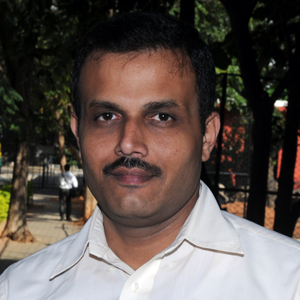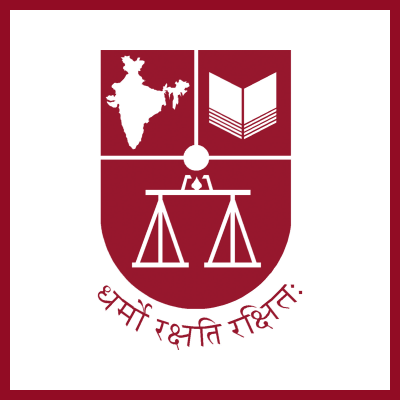Postgraduate Diploma inEnvironmental Law(PGDEL)
Overview
The PGDEL has been provided continuously since 2000. It provides expertise in the law relating to the environment and the ecological, socio-economic, scientific and administrative issues that inform its application.
The PGDEL is tailored to aid the knowledge and career progression of lawyers, activists, academics, adjudicators, researchers and administrators interested in building a more ecologically and socially conscious milieu.
Programme Highlights:
- The first of its kind in India, this programme introduces learners to domestic, international, and local environmental laws, their limitations and application, as well as current innovations in environmental conservation, renewable energy, and climate change.
- Aids in building a critical awareness about the legislative and judicial aspects of Water, Air and Waste Management in India.
- Tailored to build the capacity of environmental professionals, activists, green-law enthusiasts, professionals from pollution control boards, R&D organisations and construction companies.
- The programme is spread across one year and gives learners the flexibility to design their own learning pathway.
Courses
Course 1: Introduction to Law & Legal Systems
This paper introduces the student to legal thinking and reasoning, and to legal systems, with a particular focus on Indian law and the Indian legal system. Those students who are from a non-law background would find this course particularly helpful.
Course 2: Philosophy, Principles, Environmental Justice and Pollution Control
The paper consists of the following modules:
Module I: Introduction
Module II: Right To Environment – A Basic Human Right: A Constitutional Law Perspective
Module III: Environmental Principles of Governance
Module IV: Traditional, Common and Criminal Law Remedies for Environmental Protection
Module V: Environmental Justice: Role & Policy
Module VI: Water Pollution and Control Laws
Module VII: Air (Prevention and Control of Pollution) Act, 1981
Module VIII: Law Relating To Waste Management
Course 3: International Environmental Law
The paper consists of the following modules:
Module I: Customary International Law and Environmental Summits
Module II: Common Heritage: Oceans and Seas
Module III: Biodiversity and Species Conservation
Module IV: Eco System and Conservation
Module V: Common Concerns: Ozone and Climate Change
Module VI: Trade and Waste Management Regime
Module VII: International Principles for Conservation and Protection of Environment
Module VIII: International Legal Developments on Sharing Natural Resources, Environmental Ability Regime and Environmental Conflict Resolution
Course 4: Natural Resource Management Law & Environment and Development
The paper consists of the following modules:
Module I: Common Property Resources and the Law (Including Watersheds)
Module II: Environmental Safeguards Relating to Development
Module III: Forest Management & Conservation: Law & Policy
Module IV: Law Relating to Wildlife: Strategy & Protection
Module V: Law Relating To Biodiversity and Its Interface with Intellectual Property Rights
Module VI: Land Conservation and Management
Module VII: Law Relating To Forest Management in India
Module VIII: Environmental Decision Making Process in India
Faculty

Professor of Law

Assistant Professor of Law

Assistant Professor of Law
Fee
For Indian Nationals
| Regular Fees | |
| Application Fee | Rs. 2,000 |
| Admission Fee | Rs. 3,000 |
| Course Fee | Rs. 24,800 |
| Examination Fee | Rs. 3,200 |
| Total fees | Rs. 33,000 |
| Other fees | |
| Admission late fee | Rs. 500 |
| Continuation fee | Rs. 3,500 per year |
| Extension fee | Rs. 6,000 per year |
| Re-evaluation fees | Rs. 900 per paper |
For Foreign Nationals
| Regular fees | |
| Application Fee | Rs. 2,000 |
| Admission Fee | Rs. 3,000 |
| Course Fee | Rs. 74,500 |
| Examination Fee | Rs. 3,200 |
| Total fees | Rs. 82,700 |
Apply
Please note the following information regarding eligibility and the mode of applying for this programme.
Eligibility
The minimum eligibility for applying for this programme is a graduate degree (in law or other fields) from a recognized university.
Students with a degree certificate or its equivalent from any UGC-recognized university, Association of Indian Universities, CA, CS, ICWA, Open University/distance learning can apply. There shall be no restriction as to age, nationality, gender or employment status.
Important Dates
Admission Closed
Classes are slated to begin by September 2025.
For admission-related queries, please write to admissions.pace@nls.ac.in
FAQs
These are some commonly asked questions about this programme. For general questions about the NLSIU Distance Progamme, please visit the General FAQs page.
How many years does a student have to complete a programme?
Students of the Diploma programmes can complete their programme in up to five years from the year of their enrolment.
Students are required to pay the prescribed fee at the time of admission. If a student has to continue the programme beyond one academic year because of non-fulfilment of the prescribed requirements for the award of the diploma, they will be permitted to continue for the subsequent two academic years by paying a continuation fee as prescribed for each year.
After a period of 3 years if the student is unable to clear the programme they may be given an extension of another 2 years by paying Rs. 6,000/- per year for the subsequent two years as extension fee, provided they have cleared 2 out of the 4 courses in a Diploma programme. At the end of the fifth academic year, if the student is unable to complete the requirements for the award of the diploma, the admission stands automatically cancelled.
What if the candidate does not complete the course in 3 years?
If the candidate does not pass or complete the course, his enrollment ceases. He will have to register afresh by following the usual procedures prescribed for first admission. His performance at the earlier exams is not carried forward. He will have to redo the entire academic exercise prescribed, in the syllabus.
What is the scheme of Assessment?
Every course shall have a combination of formative and summative assessments. This will aid in regular learning and understanding concepts better. Please note the following details regarding the upcoming assessments: Assessment Details:
| Sl. No | Assessment Type | Assessment Pattern | Marks Allotment | Mode |
| 1. | Formative I | MCQs | 20 Marks | Online |
| 2. | Formative II | MCQs | 30 Marks | Online |
| 3. | Summative | Subjective | 50 Marks | In-person |
What is Grading Mechanism?
To successfully complete a programme, a student must take all three assessments (Formative I + Formative II + Summative) and obtain a cumulative grade point average (CGPA) of three and above out of seven. An aggregate of your performance will count towards the final grade in each course.
| Grade | Grade Description | Grade Point | Percentage of Marks |
| O | Meets the highest standards for the assignment or course | 7 | 70% and above |
| A+ | Meets very high standards for the assignment or course | 6 | 65% to 69.99% |
| A | Meets high standards for the assignment or course | 5 | 60% to 64.99% |
| B+ | Meets most of standards for the assignment or course | 4 | 55% to 59.99% |
| B | Meets basic standards for the assignment or course | 3 | 50% to 54.99% |
| C+ | While acceptable, falls short of meeting basic standards in several ways | 2 | 45% to 49.99% |
| C | Lowest passing grade | 1 | 40% to 44.99% |
| F | Failing, very poor performance | 0 | Below 40% |

Admission Status
CLOSED
Duration
1 Year
Number of Courses
4
Course Fee (Indian Nationals)
Rs. 33,000/-
Course Fee (Foreign Nationals)
Rs. 82,700/-
